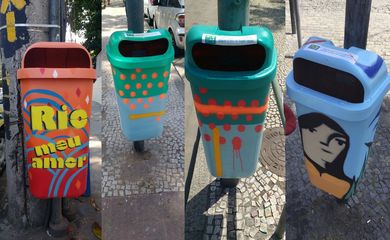Brasília hosts int’l conference on solid waste management
From June 5 to 7, Brasília is slated to host the first edition of the International Zero Waste Cities Conference, a chance for great names from Brazil and the world to unveil better practices and state-of-the-art technology in solid waste management from across the globe.

Representatives from every continent as well as sustainability and environment experts will come to the Brazilian capital to tell their successful stories—among them Akira Sakano, chair of the Waste Academy board of directors, in Japan, named among the World Economic Forum’s Global Shapers.
Global Shapers is an initiative aimed at acknowledging the efforts of young people who seek to innovate and make a positive impact on their cities through entrepreneurial ideas, the exchange of experiences, and networking.
Zero Waste Academy is a non-profit organization created in 2005 in the city of Kamikatsu, designated as Japan’s first local community with a zero-waste target. Kamikatsu is famous for its 45 waste sorting categories observed by locals, and has reached almost 80% of the recycling of its waste.
Hearing the people from these backgrounds can inspire decision makers and society at large. Other major experts in Brasília include Richard Anthony, president and founder of the International Zero Waste Alliance, in the US; Charles Moore, captain of research ship Alguita, who described the islands of waste in the Pacific; and Leslie Lucaks, in charge of the Zero Waste program in large stadiums in the US, like the Rose Bowl.
Wastage
“As it stands today, garbage ranks third among the expenses incurred by Brazilian cities. Whenever I hear someone complaining about the shortage of funds for the construction of a hospital or a school, I remember how much is being thrown to waste,” said Rodrigo Sabatini, head of Instituto Lixo Zero Brasil.
Waste sorting is carried out only in 18% of Brazilian cities, according to data from the Business Commitment for Recycling (Cempre), which surveyed 1,055 cities. Sabatini says that Brazil produces some 80 million tons of solid waste every year—the equivalent of 200 football stadiums. Also appalling is the amount lost by the Brazilian economy every year—$32.5 billion in products that could be recycled.
Sabatini built a simulator that estimates the total costs stemming from garbage in a given city and how much it would gain if the zero waste concept were adopted. “It’s a target that takes time to be met, but it’s worth it,” he argued. The simulator will be available for use for the duration of the conference.



